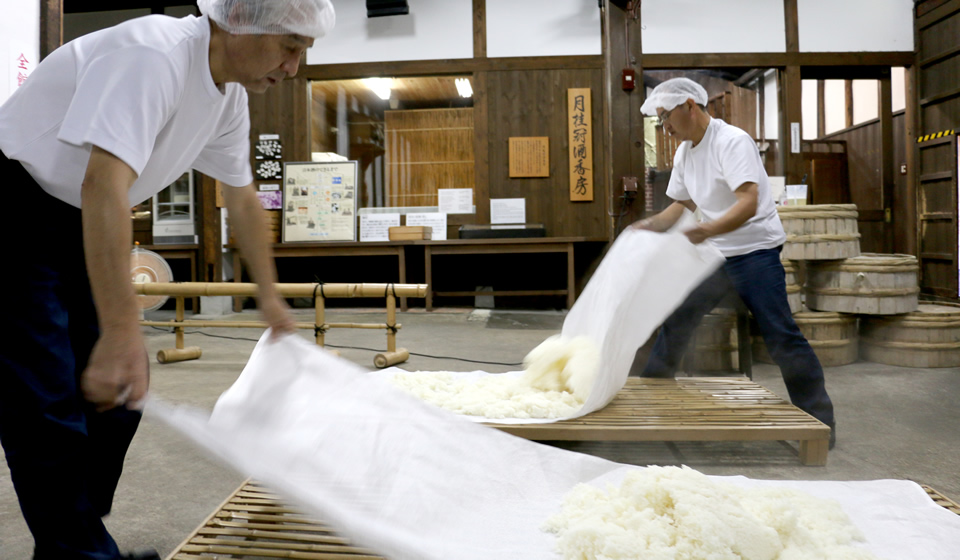
Inhouse Toji (Chief brewers) with Top-Level Skills
Sake is a naturally fermented alcoholic beverage brewed from rice, select water with a low mineral content, koji (molded rice made from Aspergillus oryzae) and yeast. The fermentation process for sake is unique in the fact that the conversions of starch into glucose and glucose into alcohol occur simultaneously.
Due to this complexity, the key to making a good sake is to choose the appropriate ingredients and foster an environment in which the koji enzymes and yeast can effectively work together.

Rice Polishing
Depending upon the type of final product desired, rice is polished by removing approximately 30 to 50 percent of its original surface.
Washing, Steeping, Steaming
The polished rice is rinsed, steeped and steamed. About a quarter of the resulting steamed rice is cooled to about 30ºC (86ºF) and set aside for making koji (molded rice). The remainder is cooled to 5ºC (41ºF) and used for the actual sake fermentation process.
Making "Koji Rice"
As the basic ingredient required to convert rice starch into glucose, koji is made by sprinkling fungi spores over steamed rice in a special room where a high temperature and humidity level complete the process in about 48 hours.
Making "Moto"
Koji and yeast are placed into a tank of water and mixed. Steamed rice is then added to make what is known as moto (seed mash). During this stage, the yeast multiplies and fermentation begins.
Fermentation - Filteration
"Moromi", a mixture of solids and liquid, is created from the fermentation process. The liquid must be separated from the solids by filtration at the end of fermentation. The separated liquid is called "sake" and the remaining solids are called "sake cake".
Pasteurization
Sake is generally pasteurized at approximately 65ºC (149ºF) to terminate enzyme activity. Our Draft Sake is not pasteurized, but instead undergoes ultra filtration to achieve this same result, protecting its smooth, fresh flavor.
Aging and Bottling
After maturing in the aging tanks, sake is ready to be bottled and shipped to consumers. If kept cool and out of direct sunlight, sake will retain its original delicate flavor for approximately two years in an unopened bottle.
